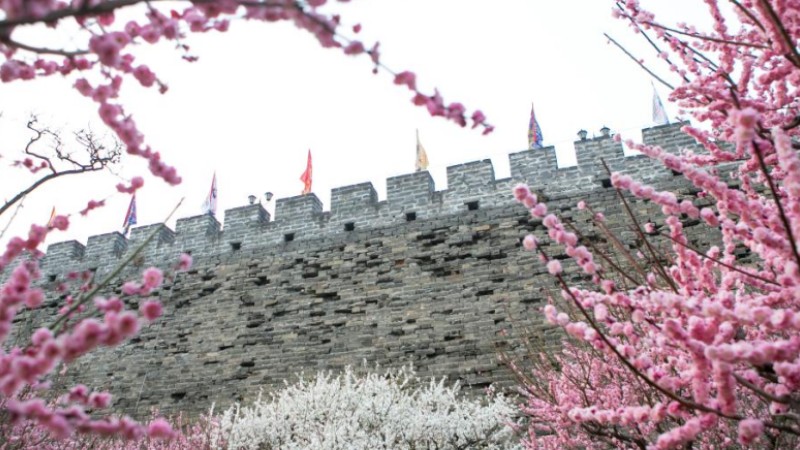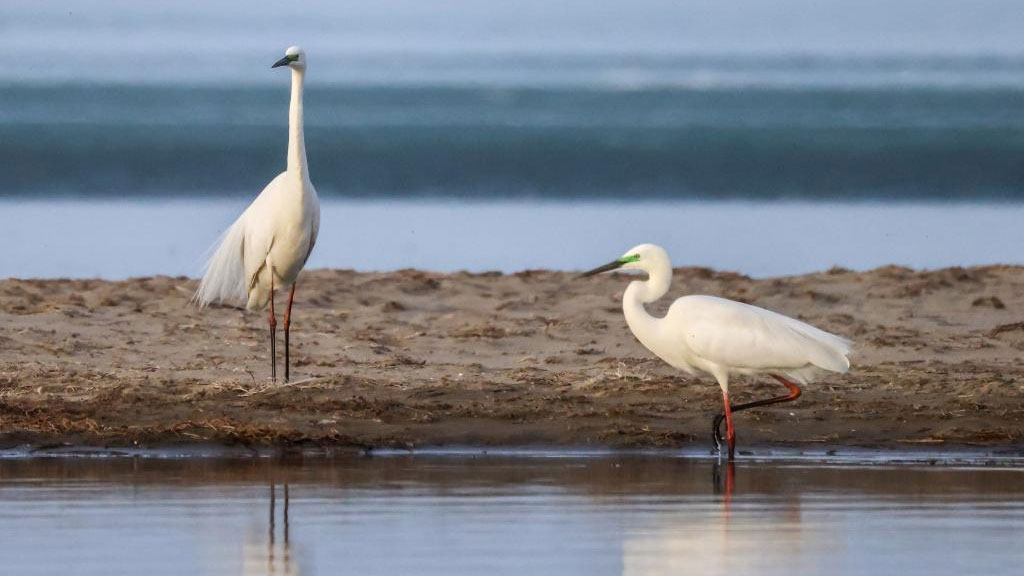Special education opens window for students with disabilities
LHASA, March 21 (Xinhua) -- Kuru, 27, has walked with difficulty since she was born, but it has not held her back in pursuing her career goals.
During classes, she likes telling her students, who also have disabilities, the classic fable "The Tortoise and the Hare," which tells the story of an overconfident hare who loses a race against a slow-moving tortoise.
"In the story, the tortoise eventually won, and I hope that you can learn from it. Let's take one step at a time, walk slowly but persistently," she said.
Kuru is an art teacher at the Nagqu Special Education School in the city of Nagqu, southwest China's Tibet Autonomous Region. Established in 2013, the school was the first of its kind in Nagqu, providing nine-year compulsory education for children with various types of disabilities, such as visual impairment, deafness and intellectual disabilities.
With the governments at various levels in Tibet attaching more importance to special education, combined with the efforts made by teachers like Kuru, more and more children with disabilities in Tibet are receiving the education they need and enjoying a more colorful life.
In 2022, 1,057 disabled students were studying in seven special education schools in Tibet, while some 4,600 disabled students were studying in ordinary schools. The enrollment rate of disabled students during the compulsory education period remained above 97 percent, according to the Tibet Disabled Persons' Federation.
Kuru, from the city of Xigaze, was born with a disability in her left leg. For decades, she has walked with difficulty and understands how hard life can be for disabled children.
In 2014, after graduating from senior high school, she was admitted to the Leshan Normal University in neighboring Sichuan Province, to major in special education. She graduated in 2018.
"Special education has always been my ideal career and students in high-altitude areas need me more," said Kuru.
Driven by her passion for the career, in 2019, she boarded a train and left for the school in northern Tibet prairie, which has an average altitude of over 4,000 meters.
However, her teaching work has not been without its difficulties.
At first, the students often failed to respond to her instructions, such as lining up after school. When a day's classes were over, the school staff would send students in lower grades back to their homes for safety considerations, but the students didn't line up, and would run around instead.
"I could not catch up with them due to my disabled leg," she said. "Sometimes I felt depressed and tired, but I didn't give up, and now they line up when I tell them to."
According to Kuru, the students have a great interest in the art classes. In an art class in 2021, she shared "The Tortoise and the Hare" with the students, who had shown their enthusiasm for fables. She found the students liked the story and encouraged them to make their own clay tortoises. Later, she stuck their handiwork on the wall of the classroom with adhesive tape.
For Kuru, the clay tortoises are not only the students' handiwork, but a means by which she can communicate with the students and let them see their progress.
Every day, when she notices positive changes made by the students, however small, such as whispering good morning to her, she would move their corresponding tortoises to a higher position on the wall.
Nine-year-old Lhapa Tashi likes his clay tortoise and often takes it home after school. "Through the tortoise, I can see my progress every day," he said.
Tsering Lhamo, 48, headmaster of the Nagqu Special Education School, still remembers how hard it was for the faculty to recruit students 10 years ago.
Sparsely distributed across this pastoral area, residents knew little about special education at that time. To look for students, Tsering Lhamo and other teachers spent two months visiting townships and villages across Nagqu, only to find skeptical parents who were reluctant to send their children to the special education school.
"Parents had many doubts about how their children would communicate and what they could learn in school. We showed them photos and videos about the school to win their trust," the headmaster said. "Our efforts finally paid off and we recruited over 60 children with visual, hearing or language impairments."
Jochung, whose grandchildren Tsering Yangzom and Losang Tsultrim both have mental disabilities, was worried when he sent them to the school. But when the siblings returned home with small pottery figurines they had made themselves, he knew his choice was right.
"Now they have fully gotten used to school life and have become more confident," said Jochung.
Tsering Lhamo said the number of students in the school has risen to 101, with seven types of disabilities at the moment, with ages ranging from five to 18. "More and more parents have realized the importance of special education and sent their children to school," she said.
Photos
Related Stories
Copyright © 2023 People's Daily Online. All Rights Reserved.









